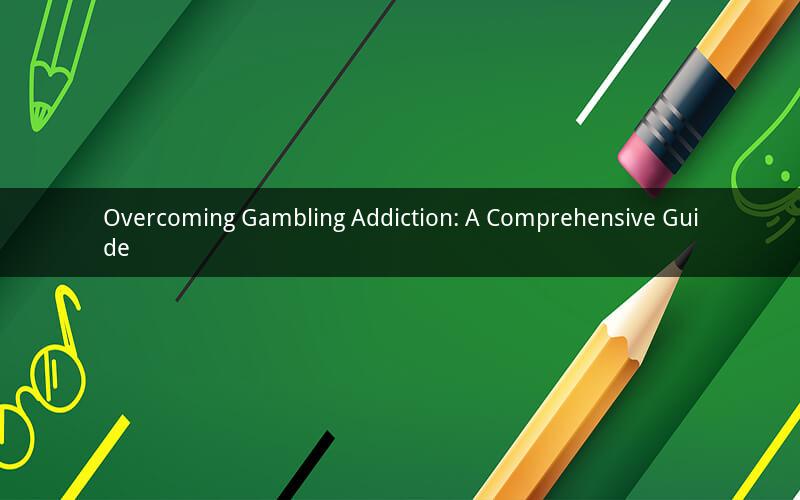
Introduction:
Gambling addiction is a complex issue that affects millions of people worldwide. It can lead to severe financial, emotional, and social consequences. If you are struggling with a gambling addiction and are seeking ways to overcome it, you have come to the right place. This article will provide you with valuable insights and practical strategies to help you on your journey towards recovery.
1. Understanding Gambling Addiction:
To begin with, it is crucial to understand what gambling addiction is. Gambling addiction, also known as problem gambling or compulsive gambling, is characterized by an uncontrollable urge to gamble, despite negative consequences. It is a progressive disorder that can worsen over time if not addressed.
1.1 Signs and Symptoms:
Identifying the signs and symptoms of gambling addiction is the first step towards overcoming it. Common signs include:
- Preoccupation with gambling thoughts
- Needing to gamble more money to achieve the same thrill
- Feeling restless or irritable when attempting to cut down or stop gambling
- Gambling to escape problems or negative emotions
- Lying to family, friends, or therapists about gambling activities
- Using gambling as a way to cope with stress or boredom
1.2 Types of Gambling Addiction:
Gambling addiction can manifest in various forms, depending on the individual. Some common types include:
- Pathological gambling: A severe form of gambling addiction characterized by intense and uncontrollable gambling behavior.
- Problem gambling: Less severe than pathological gambling, but still causing significant distress and harm.
- Social gambling: Gambling in social settings, such as casinos or online platforms, without causing significant harm.
2. Seeking Professional Help:
Seeking professional help is essential in overcoming a gambling addiction. Here are some options to consider:
2.1 Therapies:
- Cognitive-behavioral therapy (CBT): A widely recognized treatment approach that helps individuals identify and change negative thought patterns and behaviors associated with gambling.
- Contingency management: A behavioral therapy technique that uses rewards to encourage positive behaviors and discourage gambling.
- Family therapy: Helps address the impact of gambling addiction on family members and promotes healthier relationships.
2.2 Support Groups:
Joining support groups, such as Gamblers Anonymous or SMART Recovery, can provide valuable peer support and resources for recovery. These groups offer a safe space to share experiences, learn from others, and develop coping strategies.
2.3 Inpatient or Residential Treatment:
For individuals with severe gambling addiction, inpatient or residential treatment programs may be necessary. These programs provide a structured environment and round-the-clock support to help individuals overcome their addiction.
3. Developing a Recovery Plan:
Creating a personalized recovery plan is essential for long-term success. Here are some key components to consider:
3.1 Identifying Triggers:
Identify the situations, emotions, or people that trigger your urge to gamble. Once you recognize these triggers, you can develop strategies to avoid or cope with them effectively.
3.2 Building a Support Network:
Surround yourself with individuals who support your recovery journey. This may include friends, family, therapists, or support group members.
3.3 Establishing Healthy Habits:
Engage in activities that promote well-being, such as exercise, hobbies, or mindfulness practices. These healthy habits can help fill the void left by gambling and reduce the urge to gamble.
3.4 Financial Management:
Address the financial consequences of your gambling addiction by creating a budget, seeking financial counseling, and learning to manage your finances responsibly.
4. Coping with Relapse:
Relapse is a common challenge in overcoming a gambling addiction. Here are some strategies to cope with relapse:
4.1 Recognize the Warning Signs:
Be aware of the early warning signs of relapse, such as increased stress, feelings of frustration, or a desire to gamble. Recognizing these signs can help you take proactive steps to prevent relapse.
4.2 Seek Support:
When you experience a relapse, reach out to your support network, therapist, or support group for guidance and encouragement. They can help you navigate through the challenges and develop strategies to overcome relapse.
4.3 Reflect on the Experience:
Reflect on the relapse and learn from it. Identify what led to the relapse and how you can prevent it in the future. This reflection can help you grow and strengthen your recovery journey.
5. Questions and Answers:
Question 1: Can I overcome my gambling addiction on my own?
Answer: While it is possible to overcome gambling addiction on your own, seeking professional help and joining support groups can significantly increase your chances of successful recovery.
Question 2: How long does it take to overcome a gambling addiction?
Answer: The duration of recovery varies for each individual. Some may experience immediate relief, while others may require ongoing support and treatment for several years.
Question 3: Can I still enjoy gambling in moderation after overcoming my addiction?
Answer: It is generally recommended to avoid gambling altogether after overcoming an addiction. However, if you choose to engage in gambling, it is crucial to do so responsibly and set strict limits to prevent relapse.
Question 4: Can my family and friends help me overcome my gambling addiction?
Answer: Yes, your family and friends can play a vital role in your recovery journey. They can offer support, encouragement, and hold you accountable to your recovery plan.
Question 5: Is there a cure for gambling addiction?
Answer: While there is no definitive cure for gambling addiction, it is a treatable condition. With the right support, strategies, and commitment, individuals can overcome their addiction and lead a fulfilling life.
Conclusion:
Overcoming a gambling addiction is a challenging but achievable goal. By understanding the nature of the addiction, seeking professional help, developing a recovery plan, and coping with relapse, you can take control of your life and break free from the grip of gambling addiction. Remember, you are not alone in this journey, and there are resources and support available to help you along the way.